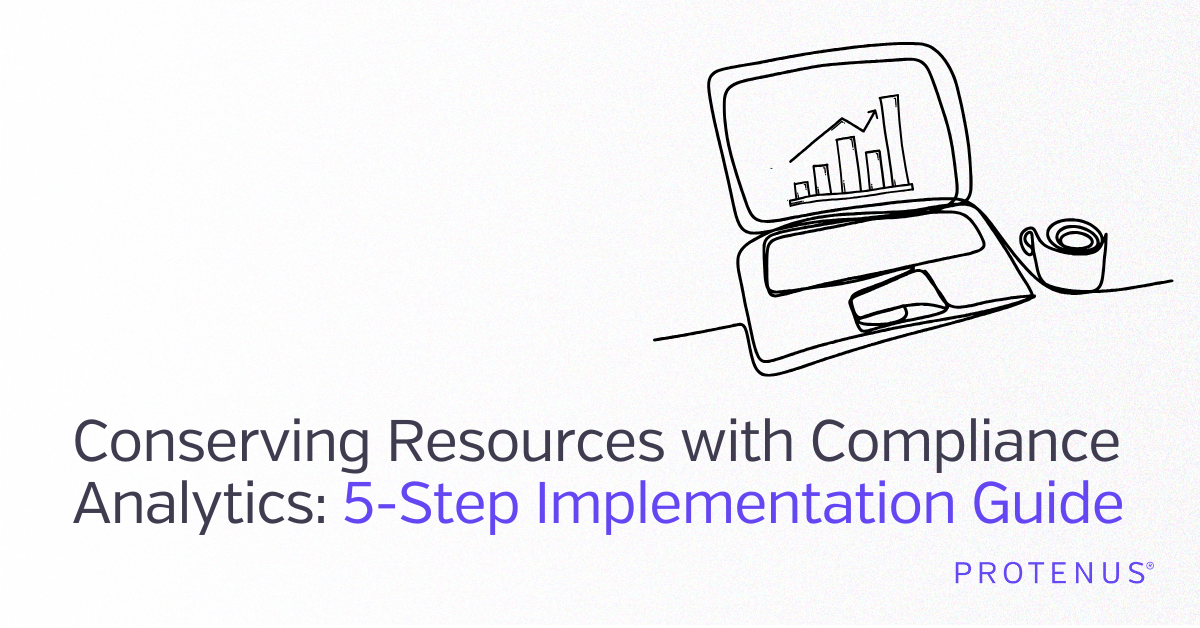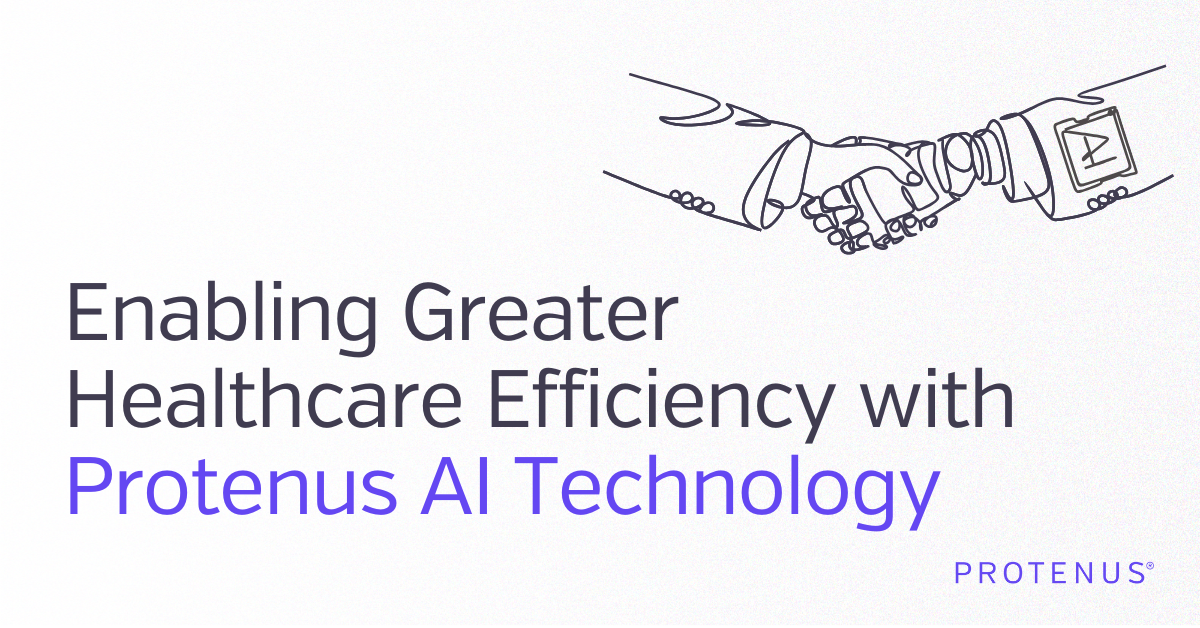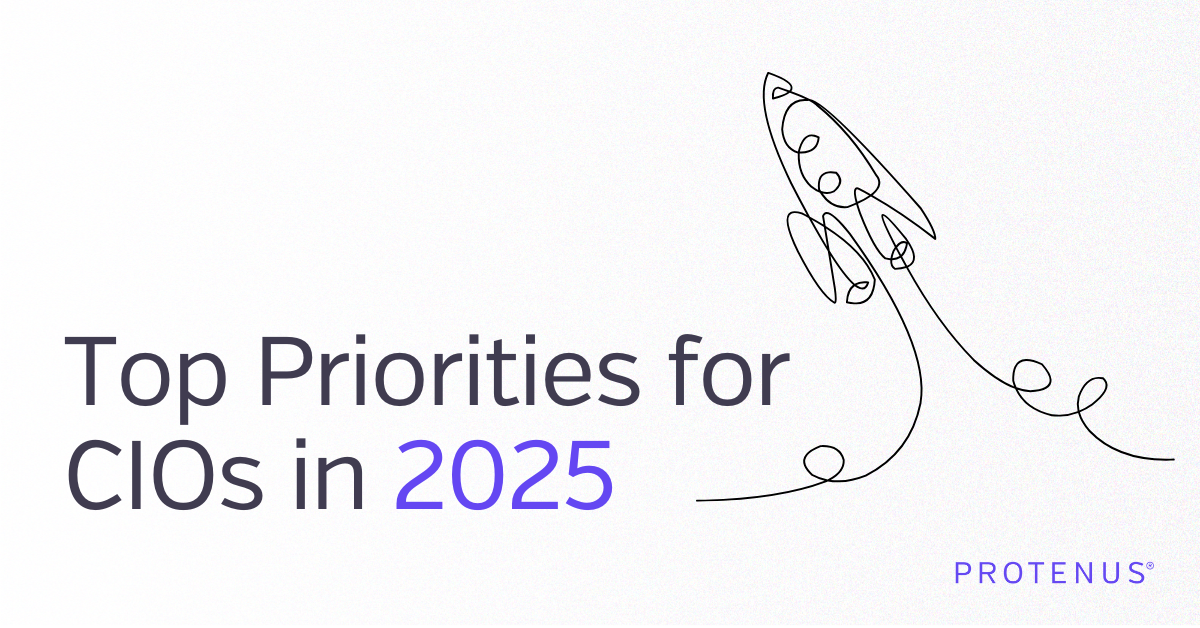Share this

Part One: An Introduction
by Kira Caban, Director of Communications, Protenus on November 17, 2020
According to the latest research from the American Hospital Association, hospitals spent an estimated $39 billion a year to maintain compliance while facing complex challenges and the mounting costs of keeping up with an ever-changing body of federal and state rules and regulations. The same organization highlighted that hospitals are overburdened by regulatory requirements and found thatan average-sized hospital dedicates about 59 FTEs to regulatory compliance, and now due to COVID-19, these dedicated resources have often been furloughed or reallocated.
Healthcare compliance analytics leverages AI to provide compliance professionals the tools they need to maintain a culture of compliance in a resource-constrained environment, while also transitioning their current compliance program from one that is reactive to one that is proactive with a focus on prevention. This AI can be trained to review millions of data accesses to patient information no matter what electronic health record (EHR) systems or ancillary systems are used. Whether a hospital is using one of the leading EHR systems, a known HR system, a specific automated dispensing cabinet (ADC), a homegrown system, or a combination, compliance analytics engineers can work to integrate data feeds so that compliance becomes a more seamless and efficient operation.
A comprehensive healthcare compliance analytics program allows organizations to:
- Aggregate auditable data from numerous sources to provide a single-pane-of-glass view of workforce behavior
- Automatically audit all events and document findings for reactive and proactive investigations
- Offer immediate, automated reminders and training to offenders, a response that has proven to prevent future violations
- Reduce time spent on labor-intensive investigations of false-positives
- Decrease the time it takes to detect and report a violation
- Focus compliance teams on prevention rather than reaction
- Minimize manual tasks required to manage a compliance program
- Help support a system-wide culture of compliance
Establishing a healthcare compliance analytics program enables health systems to ensure they are complying with all regulations in the most efficient and cost-effective way possible. Such automated compliance efforts help to reduce risk across the entire organization while saving significant costs, and freeing staff to focus on other organizational priorities.
Imagine how that $39 billion could be used to advance patient care, instead of trying to harness new compliance mandates and conducting time-consuming manual audits. In addition, by taking a more proactive stance on compliance—rather than reacting to problems after they arise—hospitals can rest assured they are preventing incidents instead of worrying about what may be lurking under the surface that could wreak havoc for the organization, its patients, and its workforce.
Download our Building a Healthcare Compliance Analytics Program white paper to learn how to build a robust compliance program for your organization.
Share this
- December 1, 2024 (3)
- November 1, 2024 (1)
- October 1, 2024 (2)
- September 1, 2024 (1)
- August 1, 2024 (1)
- July 1, 2024 (1)
- June 1, 2024 (1)
- May 1, 2024 (1)
- March 1, 2024 (2)
- February 1, 2024 (3)
- January 1, 2024 (1)
- December 1, 2023 (1)
- November 1, 2023 (3)
- October 1, 2023 (3)
- September 1, 2023 (1)
- August 1, 2023 (1)
- July 1, 2023 (2)
- April 1, 2023 (1)
- March 1, 2023 (1)
- February 1, 2023 (1)
- December 1, 2022 (3)
- November 1, 2022 (3)
- October 1, 2022 (1)
- September 1, 2022 (1)
- August 1, 2022 (2)
- June 1, 2022 (4)
- May 1, 2022 (5)
- April 1, 2022 (1)
- March 1, 2022 (4)
- February 1, 2022 (3)
- November 1, 2021 (2)
- October 1, 2021 (3)
- September 1, 2021 (3)
- August 1, 2021 (3)
- July 1, 2021 (4)
- June 1, 2021 (2)
- May 1, 2021 (2)
- April 1, 2021 (2)
- March 1, 2021 (5)
- February 1, 2021 (1)
- January 1, 2021 (1)
- December 1, 2020 (1)
- November 1, 2020 (2)
- October 1, 2020 (2)
- September 1, 2020 (3)
- August 1, 2020 (2)
- July 1, 2020 (2)
- June 1, 2020 (6)
- May 1, 2020 (3)
- April 1, 2020 (4)
- March 1, 2020 (2)
- February 1, 2020 (4)
- January 1, 2020 (2)
- December 1, 2019 (2)
- November 1, 2019 (1)
- October 1, 2019 (1)
- September 1, 2019 (1)
- August 1, 2019 (1)
- June 1, 2019 (1)
- April 1, 2019 (1)
- February 1, 2019 (1)
- January 1, 2019 (1)
- December 1, 2018 (2)
- November 1, 2018 (2)
- October 1, 2018 (2)
- September 1, 2018 (3)
- August 1, 2018 (1)
- July 1, 2018 (2)
- June 1, 2018 (2)
- May 1, 2018 (1)
- April 1, 2018 (1)
- March 1, 2018 (2)
- February 1, 2018 (6)
- January 1, 2018 (2)
- September 1, 2017 (2)
- August 1, 2017 (2)
- June 1, 2017 (2)
- May 1, 2017 (1)
- April 1, 2017 (1)
- March 1, 2017 (2)
- February 1, 2017 (5)
- January 1, 2017 (2)
- December 1, 2016 (3)
- November 1, 2016 (5)
- October 1, 2016 (4)
- September 1, 2016 (8)
- August 1, 2016 (4)
- July 1, 2016 (4)
Subscribe by email
You May Also Like

Conserving Resources with Compliance Analytics: A 5-Step Implementation Guide

Enabling Greater Healthcare Efficiency with Protenus AI Technology

.png?width=1000&height=140&name=Bluesight%20%2B%20Protenus%20Logo%20%20(1).png)
